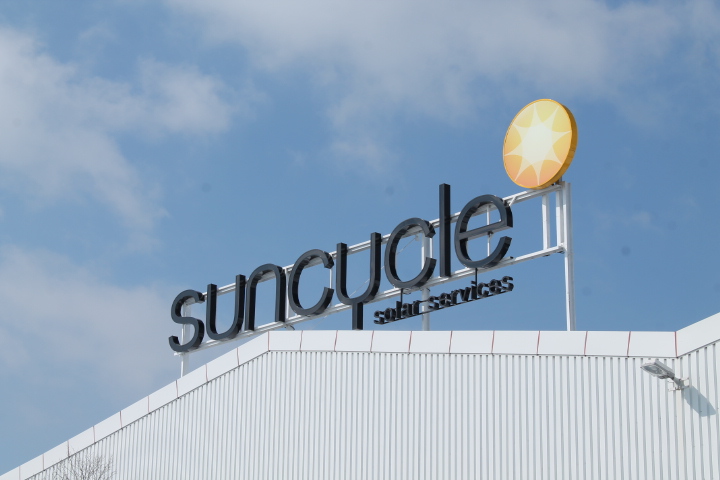A common source of excitement and anxiety for college students is the complex decision of what career path to pursue upon graduation. As climate change becomes a more urgent concern and the commercial viability of renewable energy continues to improve, the solar industry offers an increasingly attractive option for job hunters looking for stable and rewarding employment.
For one thing, solar has been growing at a much faster rate than the general economy for the past several decades. “Thirty to 40 percent per annum growth has not been uncommon,” said Eric Daniels, Frederick Community College alumnus and CEO of Suncycle USA, headquartered here in Frederick.
And that growth does not appear to be slowing. In fact, the U.S. Bureau of Labor Statistics predicts that solar photovoltaic installers will be the fastest growing occupation in the country between 2018 and 2028, expanding by an estimated 63%.
“I don’t see any limit to solar growth,” said Daniels. “Any flat surface can be a generator. You just have to be clever about how you want to use it.”
That flexibility gives solar applications an edge over other types of renewable energy, such as wind and hydroelectric, which have more site-specific optimization requirements. This versatility also allows solar to be used in ways most people would never suspect.
“Icemaking is my favorite,” said Daniels. “We did some icemaking for fisheries in Mexico so that they could get their fish to market. We did the same with roses in Mexico so they can export roses now that are packed in ice made from the sun.”
The outlook for solar in Frederick County is likewise promising. Frederick is already home to over half a dozen solar companies, all founded since the year 2000. Then there are large installations like the 15-megawatt solar project completed a few years ago at Fort Detrick, or the more recent array constructed by Tesla on a Frederick County landfill. These may be only the beginning of major solar investments that will continue for years to come, and serve as evidence of the enduring potential of local solar demand.
One of the benefits of the ever-increasing size of the industry is that there are more ways than ever to get involved. “It kind of depends on where your heart is,” said Daniels. “You can get into sales. You can get into marketing. You can get into finance.”
When asked which of the skills he had acquired over the course of his college career that were most useful once he began working in the solar industry, Daniels said, “Certainly all my chemistry transferred directly. The math helped a lot. Math is always a good foundation.” Additional education in the field also never hurts.
“Sometimes we’ll get a project where we need guys or girls that can get out there and know what they’re doing right away, and that technical training is the main thing,” said Sarah Daniels, chief financial officer of Suncycle USA. She added, “How to fix things and how to measure things. Being in the field is the best experience you can get. And there are schools that teach you hands on.”
Many area community colleges offer specialized programs in solar installation or inspection, including Hagerstown Community College and Montgomery College. FCC currently has no such program, nor does Hood College. But again, speaking to the size and diversity of the industry, many courses at FCC teach transferrable skills in the fields of electronics, accounting, and even drone technology.
In addition, much of the training for entry level positions happens on the job. “I mainly learned on the go,” Eric Daniels said.
For FCC students trying to decide what career path to follow upon graduation, the solar industry holds significant financial promise. Yet for many in the field, one of the most powerful reasons to pursue a career in renewable energy has nothing to do with money.
“It didn’t take me too long to conclude that when it came to things that my kids were proud of, solar was way up on the list,” Eric Daniels said. “My heart’s always been in renewables and environmental matters, and cleaning up the environment is a big part of what I’ve been trying to do for all my life.”

